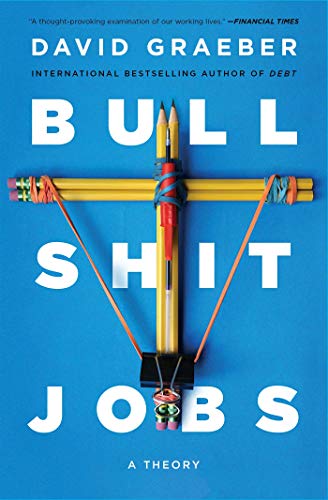What is Free Love Community, and how can we get there? See the “About” page and the other blog posts.
Teaser: Aliens of Our Creation
These are some notes for an upcoming book that I’m writing. So far, it is over 320 pages long. After editing, it will probably be shorter. (Started: 2022-07-13)
Prologue
We are in the middle of a Sixth Extinction event. Millions of species on this planet are disappearing. Humans could be included. The equatorial region of the planet could become uninhabitable for most mammals. Temps above 88 deg. F (31 deg C) with 100% humidity is fatal for humans (and other mammals). {cassella-01}
Clearly, humans are causing climate change. But even if CO2 is brought under control, there are many other environmental problems caused by humans: deforestation/desertification, soil loss, disruption of water cycles, plastic pollution, insect decline, fishery collapses, mineral resource limits, and the list goes on and on.
Our human institutions seem to be unwilling to address these problems with real solutions. And there seems to be nothing that individuals can do; we seem to be helpless under the powerful fictional entities that “we” have created.
How do we control these anti-life entities? There is no Planet B.
Book Structure
Main Parts
The book is organized in BLUF format (Bottom Line Up Front). The current Draft TOC can be found near the end of this post.
Part I. Conclusions, gives some brief conclusions to the major problems. There are only some descriptions of the problems. And the conclusions or solutions are only briefly described, with no backup. See the Key Points for some of the main assertions.
Part II. Key Points, gives an outline of the problems and the main assertions for the conclusions, with some source references. If you don’t want to read the source references, then see the Details section. See ‘Bibliographic Reference Key’ Appendix, for a description of the reference notation style.
Part III. Details, gives even more details and discussion, with many quotes from the sources.
Continue reading Teaser: Aliens of Our CreationCommunity and the Unquantifiable
Chapter 22 from the book: Sacred Economics: Money, Gift, and Society in the Age of Transition (Kindle Edition), by Charles Eisenstein, [eisenstine-12] gives a pretty good explanation for why the communities, that we need, are so hard to recreate.
Here are a number of quotes from the chapter that I found most relevant.
We have no community because community is woven from gifts.
[eisenstine-12:p419]
There is no community possible among a group of people who do not need each other.
[eisenstine-12:p419]
We are tricked into thinking that money will buy us everything we need.
Story: Bullshit Jobs
Book: Bullshit Jobs: A Theory, by David Graeber
Kindle edition ISBN: 150114331X; Publisher: Simon & Schuster (May 15, 2018)
A “bullshit job” (henceforth referred to as a B.S. job) is a job that has no value. If it were to disappear, there would be no impact. Because “value” is so subjective, he leaves the definition of a B.S. job up to the worker. Do you see value in your job, even if it is an awful job? If so, maybe for you, it’s not totally B.S. Or do you see yourself as just a “cog” in the work machine? Or even worse: a useless cog?
Continue reading Story: Bullshit JobsIt’s as if someone were out there making up pointless jobs just for the sake of keeping us all working. And here, precisely, lies the mystery. In capitalism, this is precisely what is not supposed to happen. …
… this is the sort of very problem market competition is supposed to fix. According to economic theory, at least, the last thing a profit-seeking firm is going to do is shell out money to workers they don’t really need to employ. Still, somehow, it happens. …
The answer clearly isn’t economic: it’s moral and political. The ruling class has figured out that a happy and productive population with free time on their hands is a mortal danger (think of what started to happen when this even began to be approximated in the ’60s). And, on the other hand, the feeling that work is a moral value in itself, and that anyone not willing to submit themselves to some kind of intense work discipline for most of their waking hours deserves nothing, is extraordinarily convenient for them.
[From the David Graeber’s essay, see below]
Training and Courses | New Way Group
We need new stories. We need to replace the conditioning of our current culture. We need tools “that work” with our diverse human nature. – “The Work That Reconnects” …
Read more at: Training and Courses | New Way Group
Event: Tamera, Healing of Love, Online – Sep 10 to Nov 4, 2018
September 10th to November 4th, 2018
If you can’t get to Tamera, I highly recommend this online course. It is self-paced and interactive.
Registration deadline: September 2, 2018
Online Course: Global Revolution and the Healing of Love
Community: How to Run Collaborative Projects That Don’t Fall Prey to Bureaucracy – Shareable
Today, when people call something “bureaucratic,” they usually mean that in a negative sense, but bureaucracy didn’t always have this negative connotation. About 100 years ago when many professional bureaucracies were being built, they were seen as a means of bringing quality control, predictability, and integrity to administrations. But bureaucracy has taken on a life of its own since its inception, and now is often viewed as self-perpetuating itself in thoroughly mediocre and banal ways.
Source: How to Run Collaborative Projects That Don’t Fall Prey to Bureaucracy – Shareable
Story: What Can We Do About the Politics of Resentment?
This is an excerpt from the Washington Monthly article by Nancy LeTourneau, April 14, 2017
Politics can only change laws, not hearts.
Vivek Murthy, the surgeon general of the United States, has said many times in recent years that the most prevalent health issue in the country is not cancer or heart disease or obesity. It is isolation.
My friends who are political scientists and/or pundits will hate that connection because it doesn’t speak to policy or even necessarily a political solution. But it is the very real phenomenon we are dealing with. I am reminded of how Derrick Jensen described the similarities between corporations and hate groups in his book, “The Culture of Make Believe.”
He said, “They’re cousins.”
I just listened.
“Nobody talks about this,” he said, “but they’re branches from the same tree, different forms of the same cultural imperative…”
“Which is?”
“To rob the world of its subjectivity.”
“Wait – ” I said.
“Or to put this another way,” he continued, “to turn everyone and everything into objects.”
Want to read more from this excellent article? Follow this link: Washington Monthly | What Can We Do About the Politics of Resentment? (If the article is “gone”, here’s an archive link: https://archive.ph/ATTYG )



